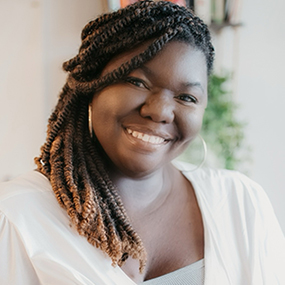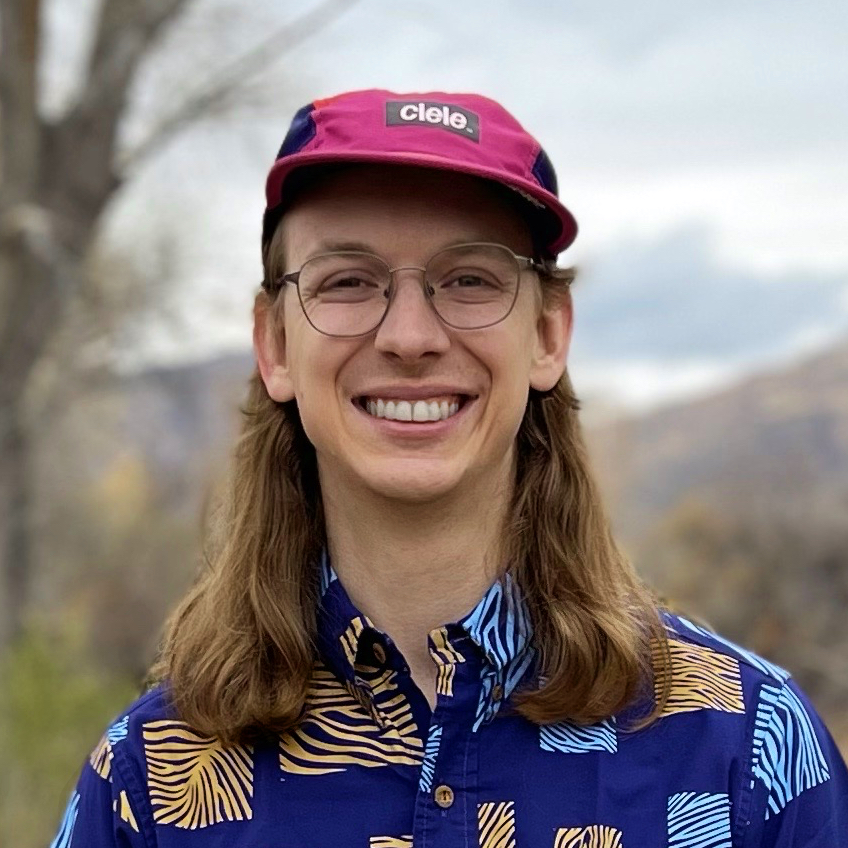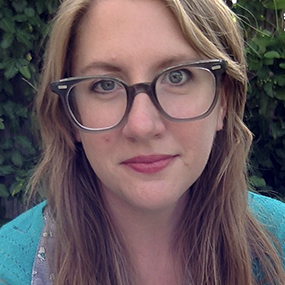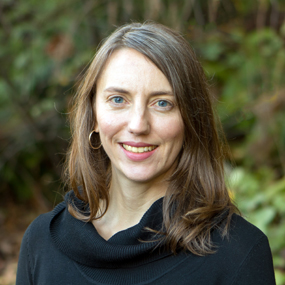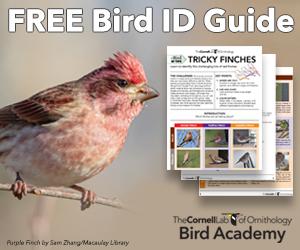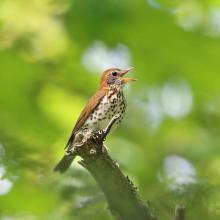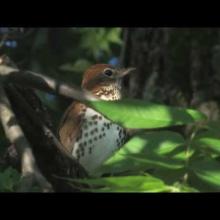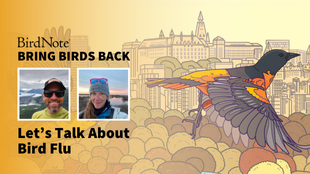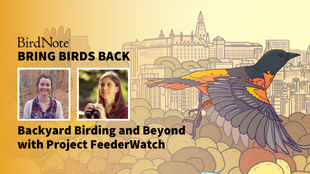

Join BirdNote tomorrow, November 30th!
Illustrator David Sibley and actor H. Jon Benjamin will face off in the bird illustration battle of the century during BirdNote's Year-end Celebration and Auction!
In the second installment of Bring Birds Back, host Tenijah Hamilton and Sheridan Alford, co-founder of Black Birders Week, talk about how to celebrate Black people who love birds. Then they get out into the wilds of Georgia in search of, you guessed it, birds.
Check out the #ForTheBirds Birding Playlist!
Stream the official Sheridan Alford × BirdNote birding playlist on Apple Music and Spotify
Visit BlackAFinSTEM's official schedule for Black Birders Week
We'd love to hear from you!
Email us a voice memo of what you're doing for Black Birders Week
Tenijah Hamilton: Birdnote Presents.
From BirdNote, this is Bring Birds Back. I'm Tenijah Hamilton. One of the biggest ways to help bring birds back, is by bringing more people into the bird world. As a relatively new birder myself, I can say that noticing and caring about the birds around you? It makes you want to help. In this episode, we’re looking at a movement that really embodies this idea.
This week marks the return of a multi-day event celebrating an often overlooked contingent of the birding community… Black people. That’s right, the second annual Black Birders Week is happening right now, with people across the country set to participate in walks, talks and community building along with an incredible group of organizers like Corina Newsome, Tykee James, and today’s guest, Sheridan Alford.
Now, if you’re like me around a year ago, you might be thinking “wow, I didn’t even know that Black people birded. I didn’t know this was a thing” and obviously, you are not alone in that thought. Going back to the statistic that I cited in the last episode from the US Fish and Wildlife Service, in 2011, 93% of birders were white.
But the organizers of Black Birders’ Week are trying real hard to change that narrative. And they want to reclaim going out into nature and learning from it as a restorative practice, rooted in our collective lineages, languages and legacies. Mostly though, they want you to know that “we out here.”
Sheridan, thank you so much for being here. It is so wonderful to have you on today’s show!
Sheridan Alford: Thank you guys for having me, I'm happy to be here.
Tenijah Hamilton: So you and I both are in Georgia.
Sheridan Alford: Yes.
Tenijah Hamilton: And I went to school in Carrollton and you went to school in Athens, home of the dawgs.
Sheridan Alford: Yes, go dogs. I would bark, but that's a lot, that's a bit much.
Tenijah Hamilton: So, rumor has it that your favorite bird shares your school colors? Tell us a little bit about that.
Sheridan Alford: It does, you know, this is really just an origin story.
Tenijah Hamilton: Your superhero origin story?
Sheridan Alford: Right. The Northern Cardinal was actually my elementary school mascot. It was probably the first bird I ever knew by sight, “that's a Cardinal”. And it was really just foreshadowing for the fact that I would eventually go to UGA, University of Georgia. The colors matched the bird: the reds, and then the black. Now the Birds had the little orange, but, you know, whatever.
Tenijah Hamilton: Those are Clemson colors!
Sheridan Alford: Clemson, Florida, all the enemies.
But yes, that red and black definitely was foreshadowing the school that I go to. But obviously what I love to do, turning it into not only a hobby, but it's turned into a movement and it's turned into so much more.
Tenijah Hamilton: We love to see it. I know something that you are pretty passionate about is the mental health aspect of being outside, especially for Black folks. Can you talk a little bit about that and what's the relationship between a sound state of mind, and being out in nature to enjoy the birds?
Sheridan Alford: Birding is my way of getting outdoors, but outside? There are no bounds. You can step out the door. You don't even have to walk two feet this way or that way. Step outside, take a deep breath, close your eyes, and really have a moment to yourself, is very important to me.
And there's always a narrative of Black people being angry or just being a certain type of way, especially Black men who deal with a lot of internal emotions just because they can't express them — “if I express my emotion, I'm going to be looked at negatively.” And so a lot of people tend to keep that in and I'm always like, “you can't keep it in. You can't bottle it up”. You have to find a constructive way to manage those emotions.
As a community, we deal with a lot of trauma, trauma that you didn't even ask for, but it's there regardless. And you have your own life to live. Your own battles and stories that are a little different from everyone else's. So I think, knowing that there's a place that you can go—
My recommendation is always outside. I do these journal-sits. It’s where you just go outside and you have a journal and you just sit there in one spot for 30 minutes. You can write, you can draw, you can name all the ants. You can just do whatever. But it's just 30 Minutes.
Tenijah Hamilton: That’s also a grounding technique too. When you're overwhelmed or some folks, when they have a panic attack, they are told to ground themselves by being able to name things that they can see, that they can touch and they can feel. And I love the idea of being out in nature and letting that be the thing that grounds you.
Sheridan Alford: Exactly. I think nature is a good supplement. If you need something to distract you, it has that. If you need something to have peace and be still, it has that. And I think it provides that level of accessibility that oftentimes is either expensive, or you just can't get your hands on it.
So I'm a big proponent of taking advantage of the world around you. And like I said, I use birding personally. I think birds are cool. Finding them, watching them, looking at them, listening to them.
Tenijah Hamilton: Yeah, I love that this is not just something fun to do or pretty to look at, but it's good for us in a bunch of ways than, I think, what is the easiest thing to pick up where it's like “you go outside and that's physical health”, but there are so many different aspects to it. Right?
Sheridan Alford: There are a million ways that I can pitch to someone that birding is cool. I can come at you from a physical side. I can come at you from a mental stability, a science standpoint. And that just shows the range. Okay. Birding has the range. It's definitely the Beyonce of the natural sciences, you know?
Tenijah Hamilton: I love that. You actually brought up a question I have: if you're talking to somebody who has never really took the time to look at birds or engage with birds in the bird world, what is your pitch? What do you say to make it sound as cool as you think it is? Because I find, I struggle with that.
Sheridan Alford: They’re cool, I promise. Right? I feel like I always start out like: first of all, if a bird lands on your window sill, you're going to sit there and you're going to watch it for a hot little second, whether you care or not. Right? Think of the birds outside your window, outside your workplace, whatever. Just notice how they're always there. The resilience is usually something that I kind of lead with. And then we get into, okay, well, I want you to go online and start Googling and find your favorite bird. What bird is you? Because again, there's thousands of species.
Everybody can find a bird that really speaks to their inner personality or their style or their vibe. So I was trying to find like, “let me— let me work with you. We're going to find your bird”. And then, they're everywhere. So at any given point in the day or time or location, you could find a bird somewhere. So I think everyone has a little bit of fascination for birds. It’s just a matter of, let's dive into that.
Tenijah Hamilton: You know what's really cool about what I think you just said, it is so accessible. Right? It's looking out at the world around you and that very act doesn't have a lot of barriers. But that being said, the field of ornithology and the practice and the hobby of birdwatching can be a little exclusive and inaccessible. Can you talk a little bit about that?
Sheridan Alford: Yeah. A little bit of backstory: ornithology and the study of it, even from across the pond or whatever. It was always traditionally a rich white person's sport. You had the money to get these expensive binoculars, but you also had the time to just sit around, quote unquote, “sit around”, and look at birds for your leisure, something that only a certain level of person was able to do. And then of course diving into the diversity aspect of it. Being Black at a time we were forced to be outside, so we had to be outside. I always say Black people are the originators of outside. We created outside. We are outside, you know, and outside is us.
Tenijah Hamilton: I feel that, I feel that.
Sheridan Alford: It's just a matter of tapping back in
Tenijah Hamilton: And what better way to do this than to go on a birdwalk of our own?
Sheridan Alford: I'm excited for it to be spring again.
Tenijah Hamilton: Me too.
Tenijah Hamilton: We met up in the evening at a nearby park and we’re chatting and intermittently, Sheridan would get quiet, and that would be my cue to stop running my mouth so that we could listen to the birdsong.
Tenijah Hamilton: Dear listener, Sheridan is focusing! She's trying real hard to figure out who that is that we hear
Sheridan Alford: So we got like three different ones going on.
Tenijah Hamilton: It's social hour.
Sheridan Alford: It is social hour, see it’s starting to get dark...
[Wood Thrush song]
Sheridan Alford: And that, like, metallic sounding Bird behind us...
Tenijah Hamilton: Metallic sounding?
Sheridan Alford: It sounds like a robot. It’s a wood thrush. And they're a migratory bird, so they're not always here. Like they're not here during the winter. So when you're walking and you hear one, like, I don't know. I just think they have a cool sound. So I'm like, okay. Like, you know, it’s migration season now the Wood Thrushes are here.
[Wood Thrush song]
Tenijah Hamilton: Huh!!! OK!
Tenijah Hamilton: A few months ago, I moved back to Georgia, and it has been so cool to learn about the place I live and the little creatures around me.
Sheridan Alford: That's the state Bird of Georgia.
Tenijah Hamilton: Which one?
Sheridan Alford: The Brown Thrasher.
Tenijah Hamilton: The Brown Thrasher!
Sheridan Alford: Yeah.
Tenijah Hamilton: Okay. So as a newbie, I have trouble seeing that with my eyes and then finding them in the binoculars.
Sheridan Alford: So what the greats taught me was look with your eyes and then bring your binoculars up to you. Don't bring the binoculars up first and then search. Cause you're not gonna find it.
Tenijah Hamilton: Found him! Oh, that's cool.
Tenijah Hamilton: As a new birder, having this joyful mentorship-moment was really special. Learning the ropes from someone who was in my shoes only a few short years ago, made me feel anchored in the broader community. Turns out, early mentorship from another Black woman really helped Sheridan to spread her wings in her own rite.
Sheridan Alford: My boss at the time was like, “Hey, do you want to go on this bird walk? You know, I know some other Black people that do birding and this will be cool”. And I was like, “sure, why not? Let's go”.
Tenijah Hamilton: Little did you know how rare!
Sheridan Alford: Right. At the time I was like, “yeah, sure. It sounds fun”. So it was cool. That was a good experience. And then I realized that like, there are no Black people that actually bird, except for those ones that I met. And it's funny because shortly following my inaugural bird walk, the start of it all. I went to my local chapter’s walk a couple of months later. Very typical, older people. I think I was the only Black person. And I think that's what really prompted me to continue. I need more Black people, I need more young people to go on bird walks and create the environment that I was introduced to.
Tenijah Hamilton: And Black Birders Week is a direct extension of that. After the break, we'll talk about how the first event started, where it's going, -- and birding playlists. You're gonna want to stick around. That's after this.
Tenijah Hamilton: Something that is so cool about the work you do is the fact that you aren’t just waiting and wishing that more diverse people would begin to bird, you are actually doing something about it!
Sheridan Alford: I mean, if you're going to talk about it, you might as well be about it!
Tenijah Hamilton: Might as well be about it! Can you tell me about Black Birders Week and how it got started?
Sheridan Alford: Of course. The Christian Cooper situation happened in New York. And we were kind of just having group chat. This is really disheartening. This is really discouraging. Just being a black person outside and you're just trying to live your own birding life. And we can't even do that. And so the discussion itself kind of turned into, let's celebrate the people that are already outdoors, but also encourage other people to go outdoors. And that spiraled into a week. And I think one of my favorite things about it was everybody got right to it and really showed their strengths. And we threw it together in literally a week. We came up with the idea and then the week was the next week.
Tenijah Hamilton: I did not know that.
Sheridan Alford: Yeah. flyers and the ideas for each day and it just shows what you can do when people are on the same page and you have a common goal and the common goal was: showcase the necessity and the lack of diversity that currently exists. But also highlight the people that are out there. There’s kids, there's grandparents, there's people in academia, there's people who do it for sport. There's black people outside. You just gotta find them.
Tenijah Hamilton: You’re here, you're talking about your superhero origin story, but this is legitimately like assembling the Avengers. It's the bird Avengers.
Sheridan Alford: Yes, this is literally an Avengers situation.
Tenijah Hamilton: [laughter] Is there one thing, either during black birders week, or after that gives you the most warm fuzzies— you're like, oh, this moment, this was the moment for me. This was my moment where I was like, we did something incredible.
Sheridan Alford: Yeah. I think my biggest “fuzzy” was seeing the grandparent-child involvement of everything, transversing the ages. I'm outdoors because my mom forced us to take hikes every vacation that we ever went on, you know? It really just showed the legacy of the outdoors and black people, as I mentioned before and how rooted it is. So I loved people posting their pictures, and telling stories too. Like “I remember going out with my grandmother and she would tell me the birds that used to visit her yard.” And I hope that it was bringing up these memories that people hadn't thought of in awhile like, “you know what, maybe I should— maybe I should go outside and see if I can find the birds that my grandma pointed out to me.” Or maybe, “I haven't seen my grandpa in a minute. We should go fishing or canoeing or something.” So that was my favorite part. I love the nostalgia of it all.
Tenijah Hamilton: Yeah. And that's so sweet. It goes back to what you were saying, black folks and communities of color aren't new to nature.
Sheridan Alford: Right. At all.
Tenijah Hamilton: Not by a longshot. And it can look different but it's so great to see that generational line, all enjoying the same activity.
Sheridan Alford: Exactly. And I love that you pointed out, like you said, the experiences are different, but there is a legacy of it. Often people are just like “black people don't go outside. They don't do this or they don't do that.” But just because it doesn't look like the traditional “go outdoors” doesn't mean that you don't have a connection to it.
Tenijah Hamilton: It is now Black Birders Week 2021. It is the second time around. What are we looking forward to this week? What's happening? What do you guys have up your sleeve? I'm sure it's some really dope stuff.
Sheridan Alford: Yes, for sure. This year, we're all about celebrating and highlighting Black people. The ones that came out of the woodwork last year, I think a lot of black birders do it for themselves. You do it because you love it. You do it because it's your passion. But they should be giving you flowers for that! And there should be recognition. So what I see for Black Birders Week is always acknowledgement and growth. Encouraging more kids to get out there with their parents or their grandparents and hopefully impacting the generations that are already present. We want to actually embrace and encourage more involvement this year. Coordinating with Cornell's Bird Lab, and coordinating with eBird and encouraging people to actually get out there and bird together and create and grow the community that we now know exists. Like you said, we're kind of trying to change the narrative. So the people that are already in those seats, showing them there's some people missing from the table. And we'd love to be there. We'll get there regardless, one way or another.
Tenijah Hamilton: Absolutely. So, I have one last question:That's that's actually a great segue to my next question, which is
You're outside. You're birding. You're in the zone. What's in your birding playlist? What's the vibes?
Sheridan Alford: I feel like black people are known for music. If there's one thing we're going to do, we're going to laugh, we're going to have fun and we're going to find some music. Right? One, it depends on the mood for the day. If somebody made me mad at work and now I'm going out to calm down and recenter or whatever. We might have— R.I.P DMX— We might have some DMX playing real low, so I could hear the bird calls. But if it's a chill day, I love H.E.R, I love Summer Walker. Megan might get thrown in there if we’re feeling kind of hype.
Tenijah Hamilton: The range.
Sheridan Alford: But it depends on the vibe for the day. For the people that have gone on a bird walk that are listening, there are different vibes for bird walks. Right? You go out with a group and they don't want anybody to talk or make any noise or walk too loudly. Right? Or you go on a bird walk and they're okay with talking, but sometimes it's super serious or whatever. Or you go with your friends, y'all talk. And if you hear a bird, you stop talking and you listen to the bird and then once it's done, you keep talking. So there's different, I hate to keep saying vibes.
Tenijah Hamilton: But it is the vibe.
Sheridan Alford: It is the vibe. There's just different vibes that go on when you go on bird walks with different people. And so one of the things I love about the community that we're building is that I can go on a bird walk with black people who might have the same vibe that I have, and the walk is a completely different experience altogether. And we might listen to Beyonce as we walk down the trail and talk about whatever, and then be like, “oh, I saw something” then look at the birds. So I love the duality and the variety. But yeah, those are my songs
Tenijah Hamilton: I love it. You gave us a full-on soundtrack for bird watching.
Sheridan Alford: I can make one for real.
Tenijah Hamilton: I was going to say that, but I didn’t want to be presumptuous.
Sheridan Alford: Okay, well, I will make an official birding playlist.
Tenijah Hamilton: Just look at that. One of the co-creators of black birders week is curating a birdwatching playlist for us. Look at it. Again, the range! We are going to put a link to that in the show notes so that folks have access.
Sheridan Alford: And don't— and don't expect— don't expect, I mean…
Tenijah Hamilton: I'm expecting it all Sheridan!
Sheridan Alford: Well, that's what I wanted to highlight. Do expect at all! Because I listen to everything. So when Mozart comes on and then Megan Thee Stallion comes on right after it, don't be surprised. Okay. Just go with it. Just to go with it. All right?
Tenijah Hamilton: What a gift, what a gift. Thank you so much, Sheridan. This has been so much fun.
Sheridan Alford: Same. I love it. I've been cheesing. My little cheeks hurt now.
Tenijah Hamilton: In speaking with Sheridan, what struck me was her insistence on the fact that though Black Birders Week was born out of the painful situation in the Ramble last year, it is a celebration. And even with a lens focused on the Black experience, she reminded me that there is no singular Black experience. We are not a monolith. And because of this, there are many ways that the organizers are also considering our intersectionality, which is a term coined by Dr. Kimberle Crenshaw, that addresses the interconnected experience of gender, race, social class etc, by being mindful of all the things that make us...us. Like the birding in urban areas, the Black immigrant experience, neurodiversity and accessibility. The list goes on.
Definitely go check out what’s happening RIGHT NOW for Black Birders Week. We’ve got links to that, and how to keep up with Sheridan in the show notes and on our website, BirdNote.org.
Bring Birds Back is produced by Mark Bramhill and me, Tenijah Hamilton. We’re edited by Oluwakemi Aladesuyi of Rough Cut Collective. Our content director is Allison Wilson. Our lead science advisor is Trina Bayard. Music is by Cosmo Sheldrake and Blue Dot Sessions. And special thanks to Vicky … and Rehka Murthy.
Thanks to our season sponsor, the Cornell Lab of Ornithology. Check out all they have to offer, like Bird Academy online courses and the Merlin ID app, at ALL ABOUT BIRDS DOT ORG.
And we’d love to hear from YOU, our Bring Birds Back flock! Send a voice memo of what you’re doing for Black Birders Week to our email, [email protected]. We’re on Twitter and Instagram, @BirdNoteRadio, or send an email to [email protected].
Thanks for listening, I’m Tenijah Hamilton and in the words of Sheridan “we out here” — so see you next time.
Tenijah Hamilton: Do you have a feeling about who's the Beyonce of birds?
Sheridan Alford: Maybe the Secretary Bird.
Tenijah Hamilton: The Secretary Bird? Doesn’t sound very Beyonce in nature.
Sheridan Alford: It doesn’t, but don't let the secretary fool you, okay? She is not here to play. They’re a Bird in South Africa and Africa in general. A very drama, in-your-face, here to strut and stunt bird. Known for their eyelashes. They’re obviously feathers. Look at those eyelashes. Like, “Girl, who is your lash tech? I need to know”.
Tenijah Hamilton: #Whoisyourlashtech
Bring Birds Back is sponsored by the Cornell Lab of Ornithology.
About guest Sheridan Alford:
Sheridan Alford is a student, graduating this summer, pursuing her Master of Science degree in Parks, Recreation, and Tourism at the University of Georgia, focusing on environmental outreach and education. Her field experiences have taken her across the American South, and her current interest includes an assessment of African-American involvement in birdwatching as an outdoor recreational activity. She helped organize the movement Black Birders Week, creates digital content on her social platforms, and continues to advocate for the diversification and dissemination of outdoor knowledge to her peers.


